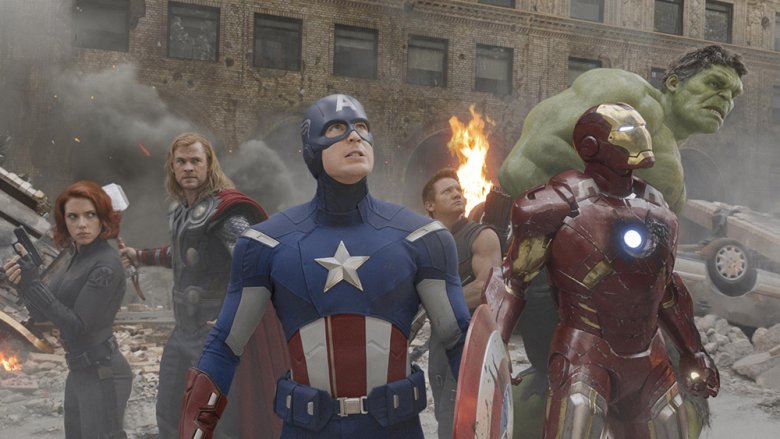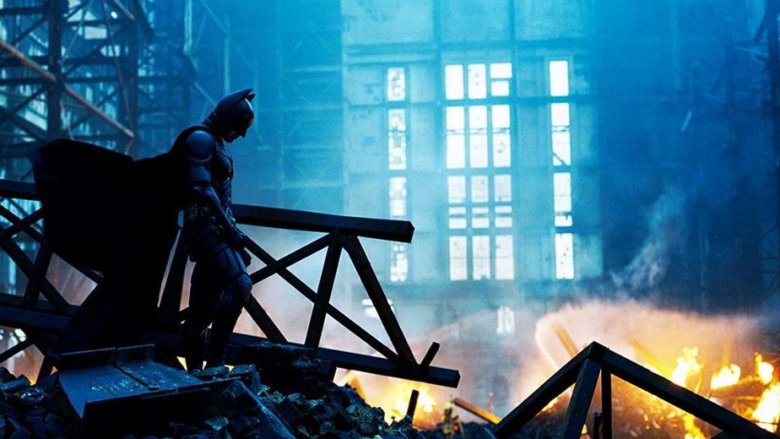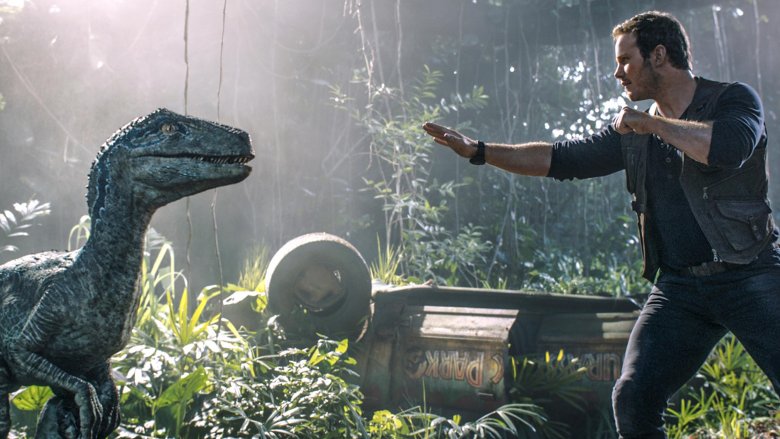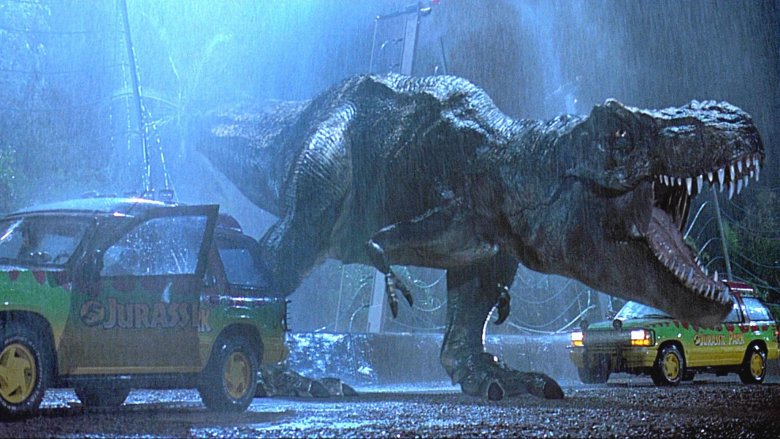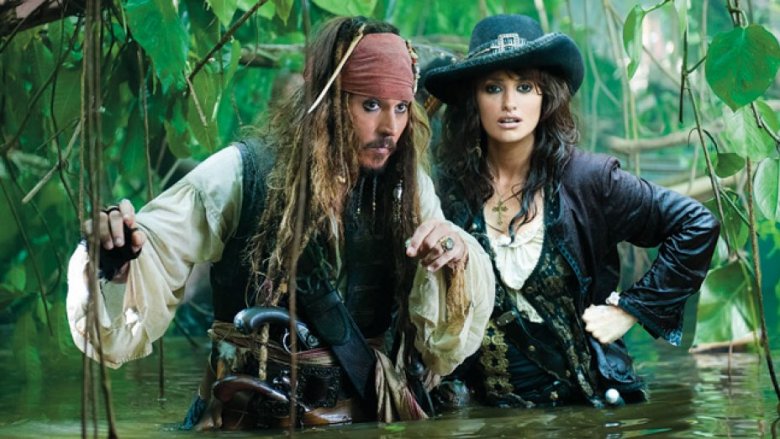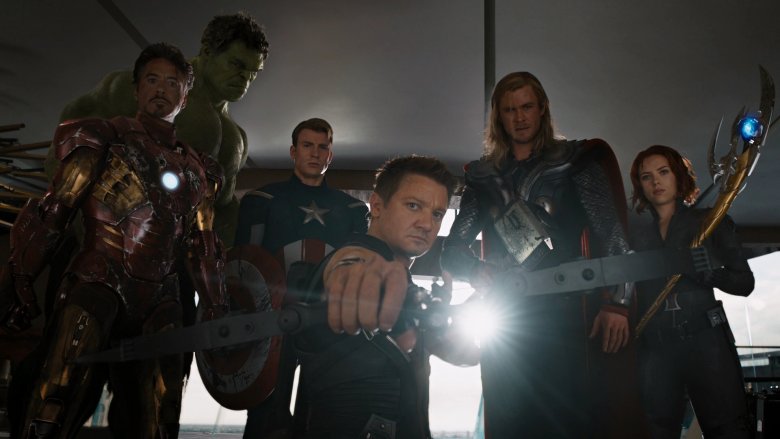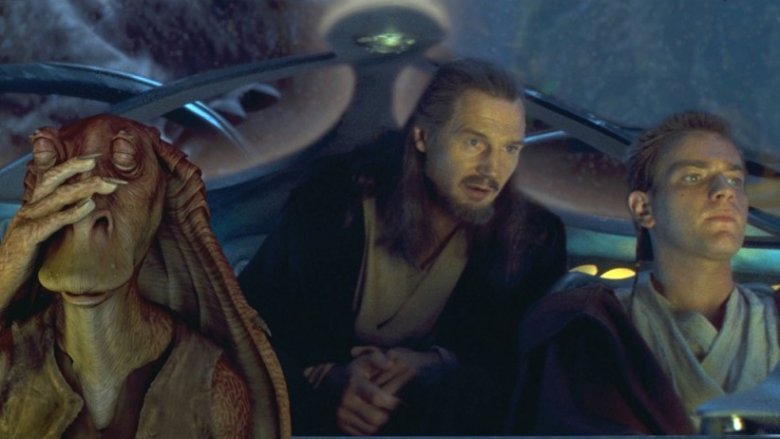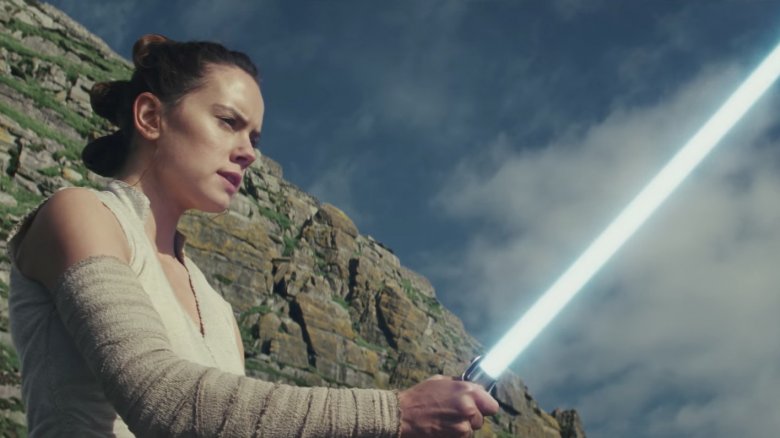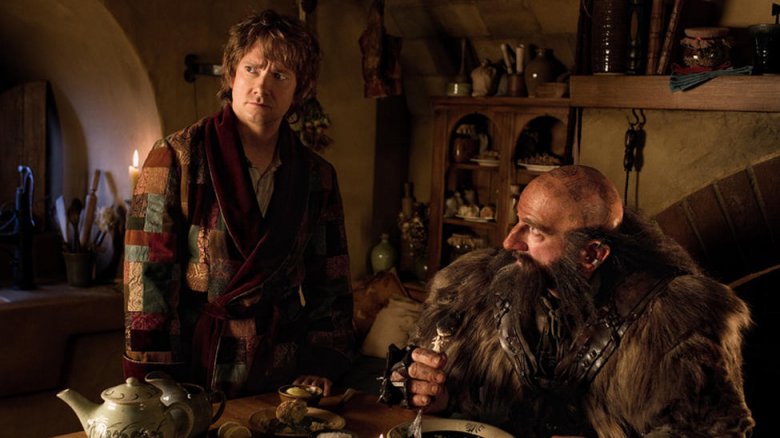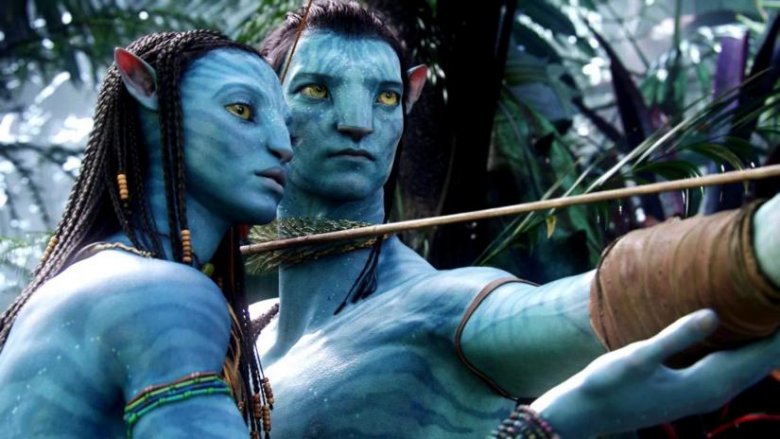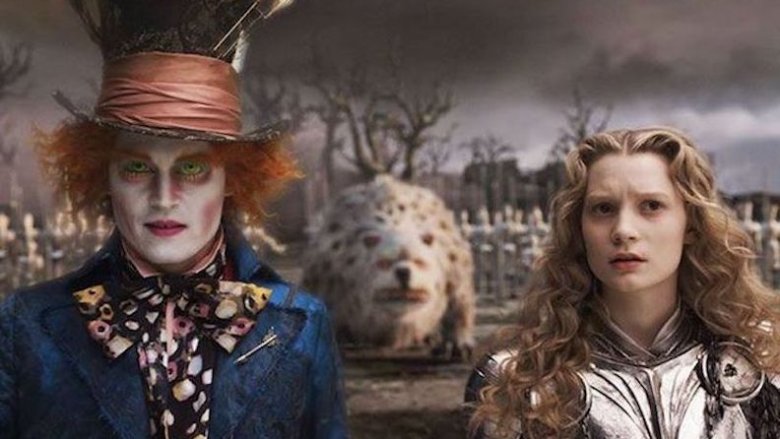The 5 Best And 5 Worst Movies To Hit $1 Billion At The Box Office
With a would-be tentpole movie hitting theaters seemingly every week (for better or worse), it's hard to argue with the idea that we're currently living in the age of the blockbuster. As the Hollywood machine continues to spend million after million on costly supersized features with marketing budgets to match, merely getting butts in seats on opening weekend in hopes of making a few bucks no longer seems adequate.
More and more, the expectation for these tentpole features is not just to have a good showing at the box office, but to break records. For most would-be blockbusters, that tends to mean crossing the $1 billion mark in worldwide ticket sales. To date, there have been a mere 39 movies that can claim such rampant box office success (with Avengers: Endgame recently joining the ranks). Though many of these movies more than earn their place among their billion-dollar brethren, not all of them are worthy of such financial distinction. Here are the five best and five worst movies to hit $1 billion at the box office.
Best - The Dark Knight
Of all the films to claim the coveted third comma in their box office take, Christopher Nolan's harrowing, pitch-black comic book caper The Dark Knight is one that few would argue isn't worthy of its spot — even if the spot (#37) is closer to the bottom than the top. The second installment in Nolan's Dark Knight trilogy did, after all, arrive in theaters behind a critical reception that was then unprecedented for a comic book movie, not to mention equally glowing word of mouth. Such were the expectations that some believed The Dark Knight might actually unseat James Cameron's Titanic as the then-highest grossing film of all time.
It didn't. But the film — driven by a grounded, game-changing mix of real world action and superhero bluster — also featured what remains one of the greatest villains in movie history with Heath Ledger's Joker. It can be argued that Ledger's untimely demise may have helped fan the flames of Dark Knight fandom beyond fever pitch, but what truly made Nolan's Bat-flick so unique is that it's as effective as a caustic crime saga as it is a gritty superhero story. That savvy mix not only helped push The Dark Knight over the $1 billion mark, but also legitimized the superhero genre for mainstream audiences, thus ushering in the so-called golden age of superhero flicks.
Worst - Jurassic World: Fallen Kingdom
For those keeping track at home, Steven Spielberg's pitch perfect Jurassic Park is not the only Jurassic flick to cross the $1 billion barrier. If you've seen any of the four sequels, you know how disappointing that fact is, because none of those sequels (including Spielberg's own The Lost World: Jurassic Park) even come close matching the original in terms of vision, originality, or outright spectacle.
More disheartening is the fact that J.A. Bayona's utterly forgettable 2018 addition to the franchise is one of the $1 billion Jurassic flicks. We don't want to pile on too much, but we will say that in regards to all five Jurassic Park movies, this one clearly cares more about bombastic set pieces than it does about drama. As such, the film never seems to have anything at stake, and just rushes along from one explosion/dino showdown to the next until it ends.
The shame of it is that Fallen Kingdom's predecessor Jurassic World did well enough in setting up characters and relationships that should've mattered in the planned sequel. They don't, and the spectacle of Fallen Kingdom just isn't enough to make up for such shortcomings. Quite frankly, it feels like they only reason this Jurassic flick exists is for Universal to grab another big fat payday. Shame on us for helping them cash in.
Best - Jurassic Park
Of all the filmmakers who've worked within the Hollywood blockbuster machine over the decades, few have had more critical and box office success than Steven Spielberg. It's a bit shocking, then, that the man who practically invented the modern blockbuster has landed just a single movie in the billion dollar club — and even that addition comes with a sort of asterisk. The movie in question is Spielberg's dino-centric action flick Jurassic Park.
Like many a summer blockbuster, Jurassic Park is a near-flawless blend of artistic ambition and big-budget bombast. The film's savvy blend of monster movie delights, game changing special effects, and wrenching human drama translated to nothing short of legit movie magic when the film hit theaters. That sense of magic helped make Spielberg's awe-inspiring tale of science running giddily amok the box office champion of 1993.
It did not, however, land the movie on the billion dollar club. Jurassic Park didn't cross that coveted barrier until its 20th anniversary 3D release in 2013 — hence the aforementioned asterisk. The hitch is that Jurassic Park did not receive any sort of release in China on its initial run in 1993, a fact that changed when the film hit theaters again 20 years later. The reissue — and its huge debut in China — gave Spielberg's masterful blockbuster the third comma it so richly deserves, and finally landed the famed director a spot in the $1 billion club.
Worst - Pirates of the Caribbean: On Stranger Tides
Think back to a time when Johnny Depp was still one of the most intriguing, risk-taking actors in Hollywood. A time when Depp's name on a film all but ensured quality. That time was 2003, when — after years of breaking weird for indie auteurs like Tim Burton, Terry Gilliam, and Jim Jarmusch — Depp was about to take one of his biggest risks yet.
That risk was, of course, taking the role of Captain Jack Sparrow in Pirates of the Caribbean: The Curse of the Black Pearl. If you'll remember, that film was actually based on a popular ride in Disney theme parks, which is hardly the usual inspiration for a Hollywood blockbuster. Somehow, the Mouse House put together a crackerjack team of actors and filmmakers to bring The Curse of the Black Pearl to life. In doing so, they unexpectedly spawned a blockbuster franchise that's grossed nearly $5 billion, and birthed two billion dollar babies of its own.
Sadly, The Curse of the Black Pearl isn't one of them. In fact, one of those slots belongs to one of the series' worst, 2011's utterly forgettable On Stranger Tides. Not surprisingly, On Stranger Tides saw Depp working with a new director, an almost entirely new cast, and a script that could've used a few more drafts. Though the magic was gone the fourth time around, the audience wasn't, and On Stranger Tides still claimed a booty well north of $1 billion.
Best - Marvel's The Avengers
These days it's far more shocking if a Marvel movie doesn't make a billion dollars than if it does. Even just since the start of 2018, the box office powerhouse that is the MCU (boasting over $21 billion in total worldwide ticket sales) has logged four new additions to the billion dollar club (Black Panther, Avengers: Infinity War, Captain Marvel, and Avengers: Endgame) — though many would argue that the MCU's ingenious approach of loosely connecting their films and funneling narratives into Avengers mayhem gives the franchise an unfair advantage.
Wiser minds would be quick to point out that the MCU's decision to connect their not-so-separate franchises and storylines and draw them all into a single conglomerate has proven to be the single greatest risk vs. reward decision any studio has ever made — one that's forever altered the way Hollywood looks at the word "franchise."
Yes, when the MCU officially kicked off with 2008's Iron Man, the concept of connecting the Marvel dots toward an Avengers film was a creative and financial risk that could've led to ruin. Instead, MCU mastermind Kevin Feige pushed all the right buttons on the road to 2012's The Avengers. Of those buttons, none was a riskier push than hiring Joss Whedon (who'd previously logged a single feature film as director) to write and direct the project — a risk Whedon rewarded by delivering a $1.5 billion blockbuster that remains one of the most daring and satisfying tentpole flicks ever produced.
Worst - Star Wars: Episode I — The Phantom Menace
If there's another filmmaker as responsible as Spielberg for birthing the modern blockbuster, it's his old pal George Lucas, whose Star Wars: Episode IV — A New Hope (released two years after Jaws) proved that big summer movie events were here to stay. Lucas even did his buddy (and future Indiana Jones partner) one better by going full-on franchise for his groundbreaking series set in that fabled galaxy far, far away.
To date, the Star Wars franchise has brought in close to $10 billion in worldwide box office — a number that's certain to see a massive shift when The Rise Of Skywalker hits theaters. Those numbers put it second only to the MCU (which, to be fair, includes a lot more films) in terms of franchise numbers.
As it happens, the first individual Star Wars flick to cross the $1 billion mark at the box office was one of the series' more frustrating efforts. It's hardly surprising that The Phantom Menace earned as much as it eventually did. It was, after all, the first official Star Wars film in nearly 20 years, and saw Lucas returning to the director's chair to begin his franchise anew. Expectations were beyond high, and when the film finally hit theaters, it proved a gargantuan snoozer mired by poor writing, too many characters, and, uh, Jar Jar Binks. Like Jurassic Park, The Phantom Menace earns an asterisk by needing a rerelease to cross the $1 billion mark.
Best - Star Wars: Episode VIII — The Last Jedi
Unfortunately, things didn't get much better for Lucas' prequel trilogy, with Attack of the Clones and Revenge of the Sith failing to correct many of the issues that sunk The Phantom Menace in the eyes of fans and critics. Once Lucas wrapped that second trilogy, a full decade passed before another Star Wars film hit theaters, and it did so sans any real contribution from the man who started it all.
That was probably a good thing, as it allowed for a fresh take on the well-trod Star Wars mythology. J.J. Abrams' The Force Awakens achieved just that by returning to the practical effects and character-driven drama that made Lucas' original trilogy such a groundbreaking delight. Still, some argued Abrams' film skewed a little too close to the originals' story arc — even if it did so in service of becoming the first Star Wars film to break the $2 billion barrier (no asterisks necessary).
As for the bold narrative and stylistic twists many fans clamored for in the new Star Wars flicks, Rian Johnson supplied them in spades with his narratively nimble, visually arresting addition to the franchise, The Last Jedi. By now we all know that not every Star Wars fan was ready for Johnson's refreshingly daring take on the Skywalker Saga. Still, those willing to go along with Johnson's unique vision were rewarded with one of the best Star Wars movies ever produced, and all that derision couldn't stop The Last Jedi from joining the billion dollar club in just three weeks.
Worst - The Hobbit: An Unexpected Journey
When Peter Jackson unleashed 2003's The Lord of the Rings: The Return of the King, it proved the Oscar-winning icing on the blockbuster cake that was his epic Lord of the Rings trilogy. As a franchise, Jackson's series was the sort of success that leaves a studio desperate for more. Luckily, scribe J.R.R. Tolkien had more story to offer, and Jackson soon announced he'd be returning to Middle Earth with an adaption of The Hobbit.
He also announced that he would not be directing said project, instead hiring Guillermo del Toro to guide this sprawling Hobbit's tale to the big screen. Then, MGM Studios (who co-owned the rights to the project) went under, and The Hobbit found itself stuck in production limbo while the mess got sorted out. That mess took longer to sort than anyone anticipated. It took long enough that Del Toro (who'd relocated to New Zealand and spent years in pre-produciton) decided to move on to another project.
Though Jackson initially did not want to direct the films after Del Toro exited — even after the MGM issues were settled — a suitable replacement could not be found in time to meet the production schedule. Back in the director's chair, Jackson jumped back into Middle Earth in hopes of more Hobbit-centric magic. Instead, he delivered The Hobbit: An Unexpected Journey, which — despite impressive box office — proved a boorish entry point to the muddled, listless sequels that followed.
Best - Avatar
James Cameron has been labeled many things over the years, but the label we tend to hear the most is "innovator." There's a good reason for that, of course. With every film he's delivered over his nearly 40-year career behind the camera, Cameron has pushed the boundaries of cinematic technology to the brink, and quite often beyond. What's continued to set Cameron apart from his tech-happy counterparts is that he always manages to use that tech in service of story. That's as true of his 1981 breakthrough Terminator as it is of his first billion dollar baby, 1997's Titanic, but was never more on display than in his mind-blowing sci-fi epic Avatar.
That makes Cameron one of a few filmmakers with more than one movie on the billion dollar list. That list gets shorter when you narrow it to $2 billion flicks. You'd better believe he's the only director to boast a pair of $2 billion beauties — and yes, Avatar (with a $2.8 billion haul) remains the all-time champ (for now).
It's worth noting that Avatar unquestionably benefitted from bloated 3D tickets sales. It's also worth noting that Avatar might be the only film to actually use 3D technology to its full potential, as a total immersion tool that all but inserted the audience directly into Cameron's cinematic environment. The environment the director conjures in Avatar truly is genuinely the stuff of dreams, and that dream makes the film more than worthy of its all-time box office champ status.
Worst - Alice In Wonderland
For a handful of films in the billion dollar club, you just have to scratch your head and wonder how they got there. Tim Burton's lethargic, half-baked live-action pseudo-adaptation of Lewis Carroll's classic Alice in Wonderland is such a film. That came as a surprise to many, as Carroll's tale of an adventurous young woman trapped in a quasi-psychedelic realm full of oddball characters and located on the other end of a rabbit hole seemed a perfect fit for Burton's outsider sensibilities.
In the case of Alice in Wonderland, it may well have been a case of sensibilities being a little too in sync. Burton — never one to shy away from choosing outlandish visuals over narrative delicacy — took a way over-the-top approach in bringing his madcap vision of Wonderland to life. While the film is quite often ravishing in its visual aesthetic, those visuals frequently overshadow the story they're meant to service, and leave Alice in Wonderland feeling more like a study in aesthetic hubris than an actual movie.
Still, with Disney firmly behind the project, Alice in Wonderland hit theaters behind a massive marketing campaign that all but ensured its less-than-stellar critical reception wouldn't hinder its chances at recouping a staggering $200 million budget. Bolstered by inflated ticket prices for 3D screenings, Alice in Wonderland recouped to the tune of $1.25 billion. For the record, that makes Alice In Wonderland Burton's highest grossing film, even if it ranks among his worst.
